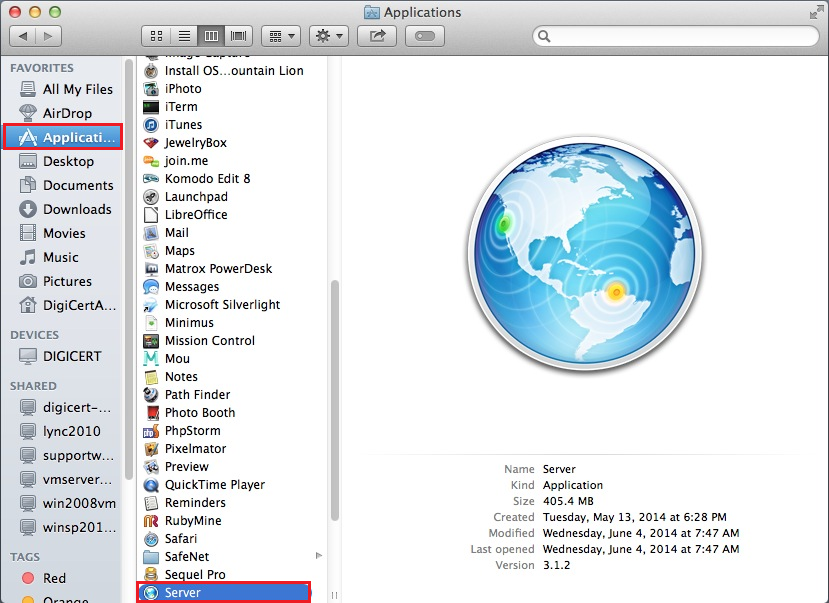- Libreoffice Snow Leopard Free
- Libreoffice Para Snow Leopard
- Libreoffice Snow Leopard Software
- Libreoffice Mac Snow Leopard Download
Contents:
Gory details - how to compile hfst-ospell and libvoikko as static universal binaries

NB! This documentation is likely outdated, and should be taken as a guide to new efforts only. Please update the document as necessary when building the extension again.
First, ensure that you have universal binaries of the things that both hfst-ospell and libvoikko depends on by specifying the +universal option in MacPorts. Or make the +universal variant default by adding it to the file:
That's right, Leopard users can download the latest version at OSU Open Source Labs. It appears the maintainer is very active and knowledgeable, having sent patches upstream, and he even uploaded screenshots for the eyes of the non-believers. The last official release that supports Tiger is at the LibreOffice archives. LibreOffice is the free power-packed Open Source personal productivity suite for Windows, Macintosh and Linux. Snow Leopard Mac OS X 10.6.8.
Libreoffice Snow Leopard Free
(see http://trac.macports.org/wiki/howto/buildUniversal for more details, including how to add more architectures for the universal build.)
NB! LibreOffice 4 still supports MacOSX on PPC all the way back to Tiger. To ensure that the Voikko plugin with hfst support actually runs on those systems, it should probably be built on such a system (assuming that the compiled pluginis more likely forward compatible than backwards compatible). Also, presently the MacOSX builds of LibreOffice (and OpenOffice) are 32-bit only, thus all libraries need to be available for that architecture. The easiest solution is to install everything using MacPorts with the +universal flag.
NB2! As of LibreOffice 4.1, support for PPC on the Mac has been dropped. Depending on how backwards compatible we want to be (or not), dropping PPC for the LO Voikko plugin can also be considered.
For hfst-ospell the required dependencies mean the following libraries (some of these might be on your system already, just check that they are universal binaries):
- libarchive
- liblzma
- libxml++2
- libz
- libiconv
- libcrypto
Depending on OS version and LibreOffice versions, the list might be longer. The only way to tell is to see what the linker complains about, and then build the missing libraries.
Future work
hfst-ospell will in the near future be rewritten to not rely this long list of dependencies, mainly by replacing libxml++2 with a selfcontained library (e.g. tinyxml). This should make compilation of hfst-ospell for linking into Voikko much easier.
Update: The first step is now done (as of hfst svn r3625), and is enabled by configuring hfst-ospell as follows:

This does of course require that tinyxml2 has been built and installed first.
Check the architecture of the installed libraries
To check that they really are universal, first get a list of which installed libraries hfst-ospell is dependent on:
Then, for each library in that list, use the following command:
For those libraries that give the above output, all is fine. But if you get a message that there is only one architecture for a library, you have to recompile and reinstall that library as a universal binary. You do that as follows:
Libreoffice Para Snow Leopard

Grammar checker update
As we now also have started to work on a grammar checker, there are two more dependencies to build:
- vislcg3
- tinyxml2
Both have their makefiles constructed by CMake, and none of them are available through MacPorts (at least not in a recent enough version).
To build universal binaries, do as follows:
VislCG3: cd into the source dir, and do:
For TinyXML2, the configuration command is:
Then do the following:
- Build hfst-ospell for inclusion in voikko
Compiling the VoikkoSpellService
Copy the file /usr/local/lib/libvoikko.1.dylib to your VoikkoSpellService source dir + Resources/voikko/. Then open the XCode project, and compile. Hopefully that should be enough.

Building the LibreOffice extension
The first time you're compiling, you need to prepare your environment:
- download the LibreOffice SDK
- cd into the SDK dir
- run perl ./configure.pl `hostname` `pwd`
Then, each time you want to compile again, you need to do the following:
- in your home dir, source . $HOSTNAME/setsdkenv_unix.sh'
Then, follow the guidelines in the Makefile, pointing LIBVOIKKO_PATH to our static library dir. If you want a static build (which you want if you intend to distribute the extension), you also need to enable STANDALONE_EXTENSION_PATH, pointing it to a dir containing the required voikko dir structure and files for at least one supported language. One possible setup, using the default Malaga-based Finnish proofing tools is:
In this case, STANDALONE_EXTENSION_PATH should be set to lib/voikko. When done, just make oxt and distribute the final .oxt file.
Finally you need to modify the build step for the oxt macosx version as follows:
NB!!! The above build instructions are only tested on Snow Leopard, and the resulting OOo / LibreOffice extension is known to only work on Snow Leopard (aka MacOS X 10.6) and Mountain Lion (aka MacOS X 10.8).
LibreOffice an Open Source Office Productivity suite a very good alternative to Microsoft office Products
LibreOffice an Open Source Office Productivity suite a very good alternative to Microsoft office Products or any other propriety office productivity suites.
LibreOffice is a office suite as famous Open Source Software being used widely for word processing. It is a fork of OpenOffice.org & developed by The Document Foundation in 2010. The LibreOffice suite is set of programs to do word processing, spreadsheets, slideshows, diagrams and drawings, maintain databases, and compose math formulas.
It is perfect alternative to any office productivity suite when it comes to word processing. LibreOffice announced new version of LibreOffice 4.2.2. People who uses Linux as operating system enjoys this office productivity suite as pre-installed application when they install various distributions of Linux on their computers.
Libreoffice Snow Leopard Software
We can easily install LibreOffice on:
- Debian / Ubuntu Linux x64 (deb)
- RedHat /CentOS / Fedora Linux x64 (rpm)
- Debian / Ubuntu Linux x86 (deb)
- RedHat /CentOS / Fedora Linux x86 (rpm)
- Mac OS X (Intel)
- Mac OS X (x86_64 10.8 or newer required)
- Windows XP / Windows 7 etc
To download latest LibreOffice Suite http://www.libreoffice.org/download/libreoffice-fresh/
LibreOffice Extensions:
LibreOffice supports third-party extensions. As of June 2013, the LibreOffice Extension Repository lists more than 190 extensions. Another list is maintained by Apache OpenOffice and one by the Free Software Foundation.
We can make it more useful with smart extensions of LibreOffice
Features
Writer A word processor with similar functionality and file support to Microsoft Word or WordPerfect. It has extensive WYSIWYG word processing capabilities, but can also be used as a basic text editor
Calc A spreadsheet program, similar to Microsoft Excel or Lotus 1-2-3. It has a number of unique features, including a system which automatically defines series of graphs, based on information available to the user.
Impress A presentation program resembling Microsoft PowerPoint. Presentations can be exported as SWF files, allowing them to be viewed on any computer with Adobe Flash installed
Draw A vector graphics editor and diagramming tool similar to Microsoft Visio and comparable in features to early versions of CorelDRAW. It provides connectors between shapes, which are available in a range of line styles and facilitate building drawings such as flowcharts. It also includes features similar to desktop publishing software such as Scribus and Microsoft Publisher
Math Math: An application designed for creating and editing mathematical formula. The application uses a variant of XML for creating formulas, as defined in the OpenDocument specification. These formulas can be incorporated into other documents in the LibreOffice suite, such as those created by Writer or Calc, by embedding the formulas into the document.
System Requirements
- Windows
- Apple Mac OSX
- GNU/Linux
Windows
Libreoffice Mac Snow Leopard Download
The software and hardware prerequisites for installing LibreOffice on a Windows system are as follows:
- Microsoft Windows XP, Vista, Windows 7, or Windows 8;
- Pentium-compatible PC (Pentium III, Athlon or more-recent system recommended);
- 256 Mb RAM (512 Mb RAM recommended);
- Up to 1.5 Gb available hard disk space;
- 1024×768 resolution (higher resolution recommended), with at least 256 colors.
Administrator rights are needed for the installation process. It is a recommended best practice to back-up your system and data before you remove or install software.
For certain features of the software – but not most – Java is required. Java is notably required for Base
Apple – Mac OS X
The software and hardware prerequisites for installing on a Apple Mac OS X computer are as follows:
- Mac OS X 10.6 (Snow Leopard) or higher;
(since LibreOffice 4.1 – Mac OS X 10.4 Tiger for versions up to 4.0.x) - Intel processor;
(Note: as of LibreOffice v.4.1 support for PowerPC has been dropped); - 512 Mb RAM;
- Up to 800 Mb available hard disk space;
- 1024×768 graphic device with 256 colors (higher resolution recommended).
For certain features of the software – but not most – Java is required. Java is notably required for Base.
It is a recommended best practice to back-up your system and data before you remove or install software.
GNU/Linux
As a general rule, you are recommended to install LibreOffice via the installation methods recommended by your particular Linux distribution (such as the Ubuntu Software Center, in the case of Ubuntu Linux).This is because it is usually the simplest way to obtain an installation that is optimally integrated into your system. Indeed, LibreOffice may well be already installed by default when you originally install your Linux operating system.
The community-supplied LibreOffice installers are provided for users having special needs, and for out-of-the-ordinary cases.
The software and hardware prerequisites for installing on Linux are as follows:
- Linux kernel version 2.6.18 or higher;
- glibc2 version 2.5 or higher;
- gtk version 2.10.4 or higher;
- Pentium-compatible PC (Pentium III, Athlon or more-recent system recommended);
- 256Mb RAM (512Mb RAM recommended);
- Up to 1.55Gb available hard disk space;
- X Server with 1024×768 resolution (higher resolution recommended), with at least 256 colors;
- Gnome 2.16 or higher, with the gail 1.8.6 and at-spi 1.7 packages (required for support for assistive technology [AT] tools), or another compatible GUI (such as KDE, among others).
For certain features of the software – but not most – Java is required. Java is notably required for Base.
It is a recommended best practice to back-up your system and data before you remove or install software.
For more help about LibreOffice please visit Documentation page: http://www.libreoffice.org/get-help/documentation/
Sources http://www.libreoffice.org/ and http://en.wikipedia.org/wiki/LibreOffice
